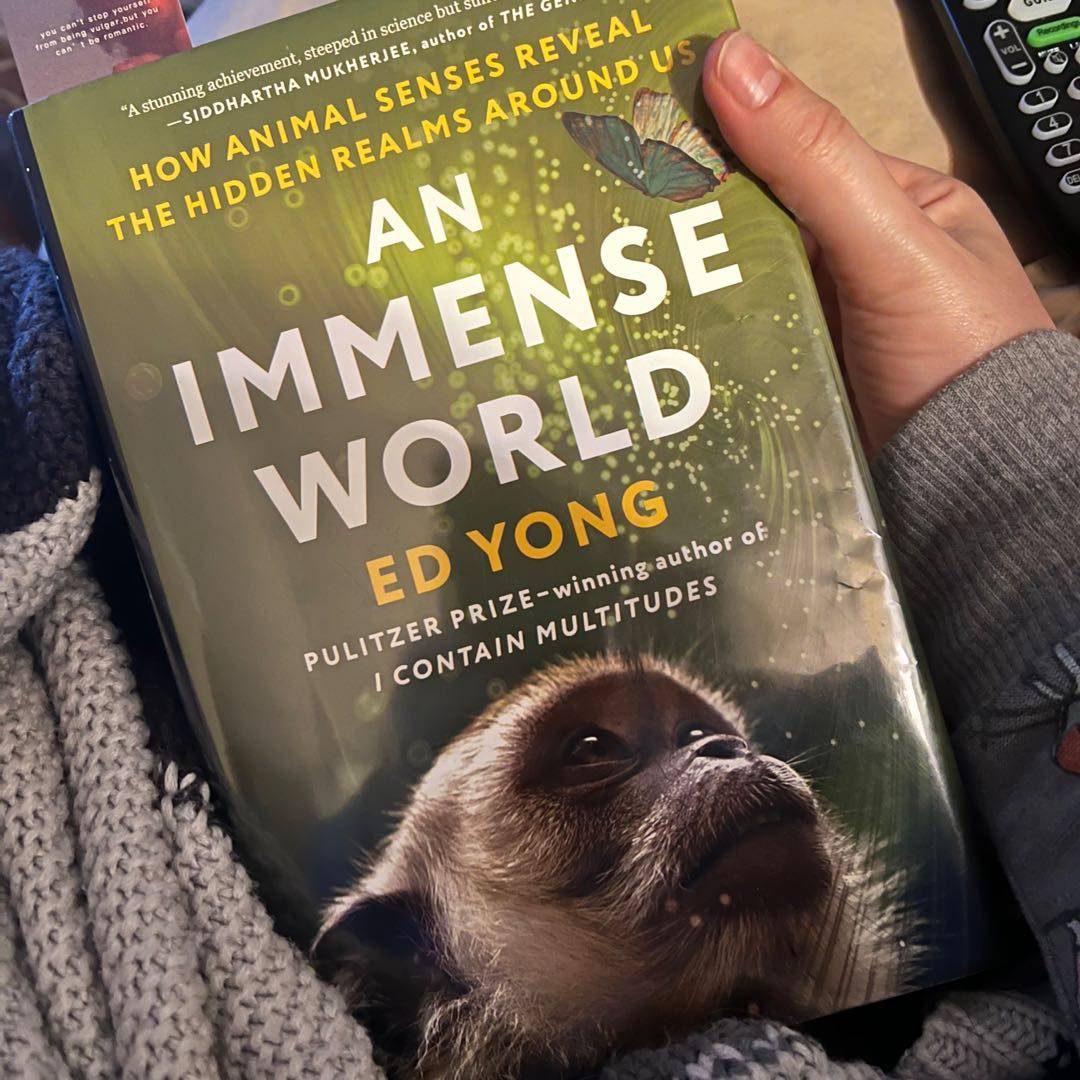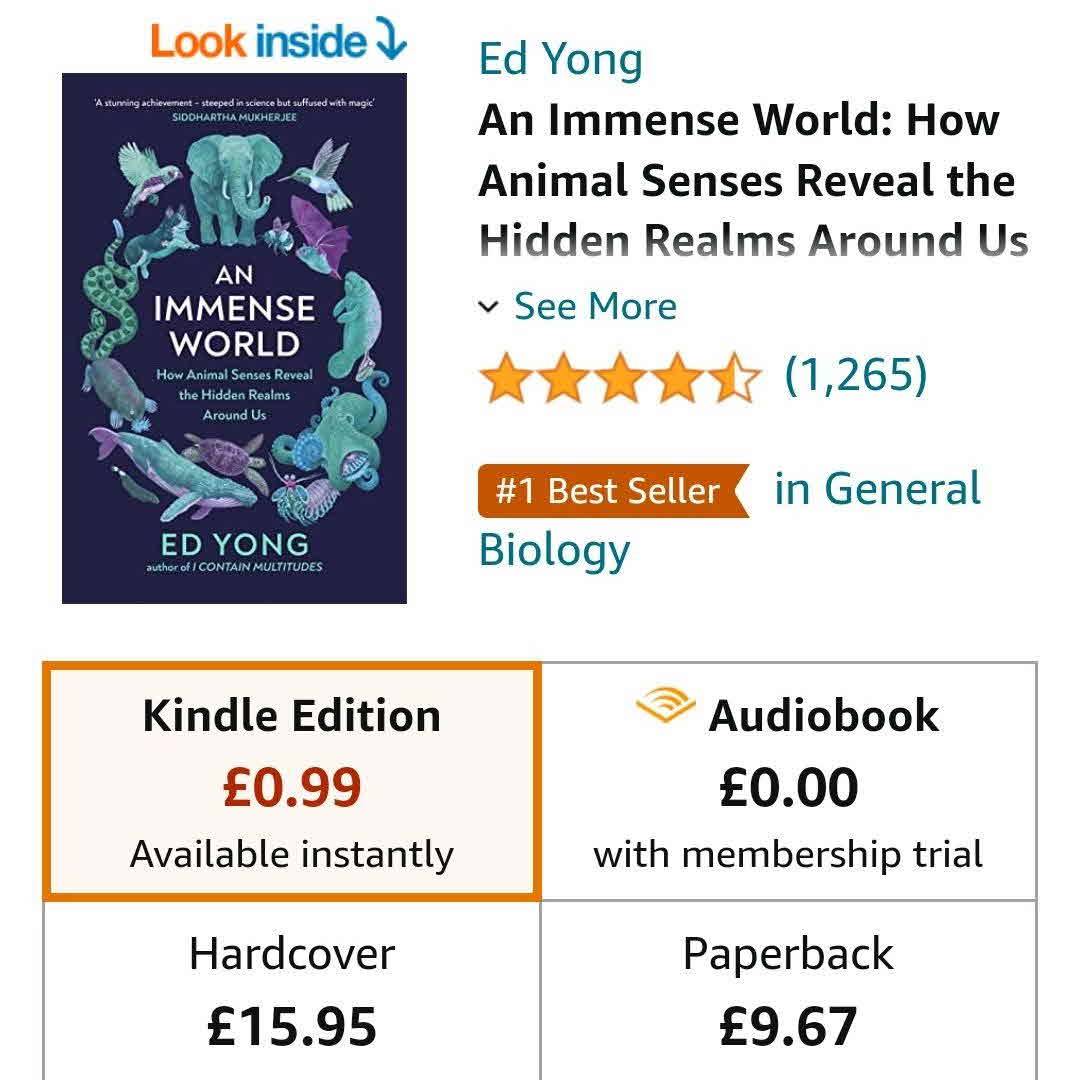Immense World: How Animal Senses Reveal the Hidden Realms Around Us | Ed Yong
NEW YORK TIMES BESTSELLER - A "thrilling" (The New York Times), "dazzling" (The Wall Street Journal) tour of the radically different ways that animals perceive the world that will fill you with wonder and forever alter your perspective, by Pulitzer Prize-winning science journalist Ed Yong "One of this year's finest works of narrative nonfiction."--Oprah Daily ONE OF THE TEN BEST BOOKS OF THE YEAR: The Wall Street Journal, The New York Times, Time, People, The Philadelphia Inquirer, Slate, Reader's Digest, Publishers Weekly, BookPageONE OF THE BEST BOOKS OF THE YEAR: Oprah Daily, The New Yorker, The Washington Post, The Guardian, Smithsonian Magazine, Prospect (UK), She Reads, Kirkus Reviews, Library Journal The Earth teems with sights and textures, sounds and vibrations, smells and tastes, electric and magnetic fields. But every kind of animal, including humans, is enclosed within its own unique sensory bubble, perceiving but a tiny sliver of our immense world. In An Immense World, Ed Yong coaxes us beyond the confines of our own senses, allowing us to perceive the skeins of scent, waves of electromagnetism, and pulses of pressure that surround us. We encounter beetles that are drawn to fires, turtles that can track the Earth's magnetic fields, fish that fill rivers with electrical messages, and even humans who wield sonar like bats. We discover that a crocodile's scaly face is as sensitive as a lover's fingertips, that the eyes of a giant squid evolved to see sparkling whales, that plants thrum with the inaudible songs of courting bugs, and that even simple scallops have complex vision. We learn what bees see in flowers, what songbirds hear in their tunes, and what dogs smell on the street. We listen to stories of pivotal discoveries in the field, while looking ahead at the many mysteries that remain unsolved. Funny, rigorous, and suffused with the joy of discovery, An Immense World takes us on what Marcel Proust called "the only true voyage . . . not to visit strange lands, but to possess other eyes."FINALIST FOR THE KIRKUS PRIZE - FINALIST FOR THE ANDREW CARNEGIE MEDAL

